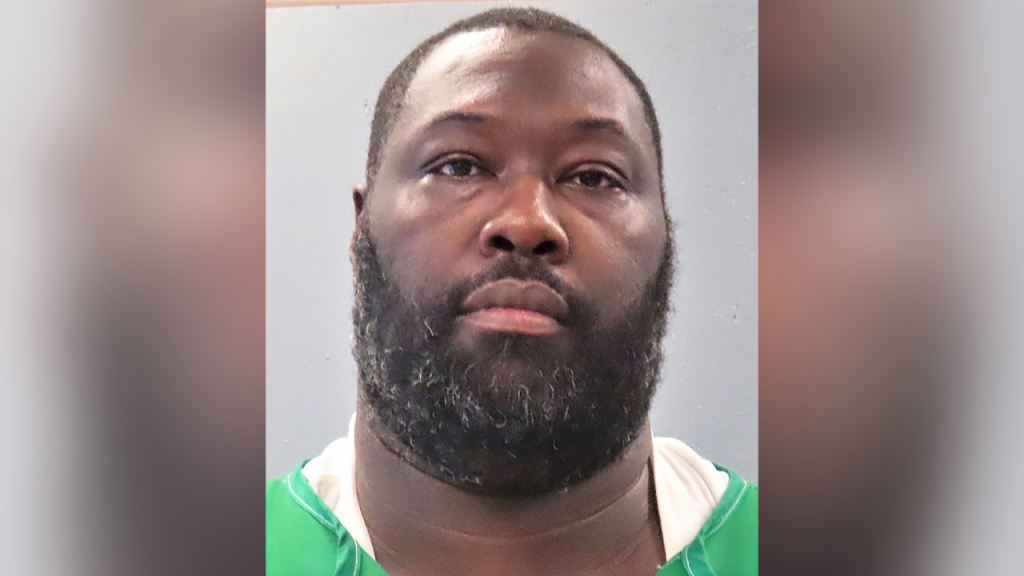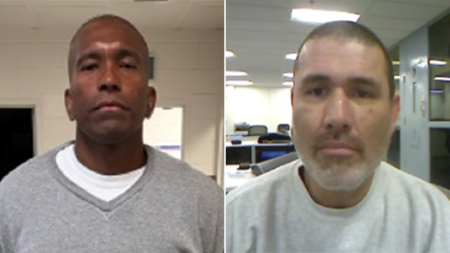Marion Bowman Jr., a 44-year-old South Carolina inmate, was executed by lethal injection on Friday, marking the third execution in the state in four months. Bowman was convicted in 2002 for the 2001 murder of 21-year-old Kandee Martin, whose burned body was discovered in a car trunk. He consistently maintained his innocence, reiterating his denial during his final statement. His execution highlights South Carolina’s renewed pursuit of capital punishment after a 13-year hiatus caused by difficulties in obtaining lethal injection drugs. This resumption follows a newly enacted shield law protecting the anonymity of drug suppliers. Bowman’s case also raises questions about the state’s execution protocols, particularly concerning individuals with obesity, given Bowman’s documented weight of 389 pounds.
The crux of Bowman’s defense rested on the credibility of witnesses, several of whom were friends and relatives who testified against him in exchange for plea deals. This arrangement raised concerns about the integrity of their testimonies and the fairness of his conviction. Bowman’s legal team argued that his trial lawyer was inadequately prepared and exhibited bias towards the white victim, while neglecting the interests of Bowman, a black man. Furthermore, the execution process itself came under scrutiny due to Bowman’s weight, raising concerns about the efficacy and humaneness of the lethal injection protocol. An anesthesiologist voiced concerns about the difficulty of administering the drugs to obese individuals and determining the appropriate dosage. These concerns were amplified by the execution of Richard Moore in November, which involved two large doses of the lethal injection drug administered 11 minutes apart, an unusual procedure that raised questions about the suffering inflicted.
Bowman’s execution unfolded with a sense of finality. He offered a brief acknowledgment to his attorney before directing his gaze upwards and closing his eyes. Following the reading of his final statement and a poem, his breathing became labored, ceasing shortly thereafter. His final words expressed a hope for peace for Martin’s family, acknowledging their pain and anger while maintaining his innocence. He also reflected on the transformative potential of even those on death row, suggesting they had evolved from the individuals who committed their crimes. His last meal consisted of fried seafood, chicken, onion rings, desserts, and juices, a final indulgence before facing his fate. Bowman’s decision to proceed with trial rather than accept a plea deal for a life sentence underscores his unwavering claim of innocence, a stance he maintained until his final moments.
The state’s renewed execution schedule has drawn attention to South Carolina’s history with capital punishment. Since the reinstatement of the death penalty in the U.S. in 1976, South Carolina has executed 46 inmates, placing it among the states with the highest number of executions. This recent surge in executions follows a period of dormancy brought about by the unavailability of lethal injection drugs due to pharmaceutical companies’ ethical concerns. The subsequent passage of a shield law, protecting the identity of drug suppliers, paved the way for the resumption of executions. The state Supreme Court’s decision in July to allow executions to proceed further cemented this shift in policy. The court has now set a pace of one execution every five weeks until the remaining three inmates who have exhausted their appeals are put to death.
The case of Marion Bowman Jr. raises numerous complex issues regarding the administration of capital punishment. From the reliability of witness testimony obtained through plea bargains to the potential biases in the legal representation he received, questions remain about the fairness of his conviction. The concerns raised regarding the lethal injection protocol for individuals with obesity, particularly in light of the execution of Richard Moore, further complicate the ethical implications of the state’s execution methods. Moreover, Bowman’s steadfast insistence on his innocence until the very end casts a long shadow over the entire process, leaving unanswered questions and a sense of unresolved injustice. His execution serves as a stark reminder of the ultimate finality of the death penalty and the enduring controversies that surround it.
The execution of Marion Bowman Jr. takes place within the broader context of capital punishment in the United States. While support for the death penalty has waned in recent years, a significant number of states continue to carry out executions. The availability of lethal injection drugs remains a contentious issue, with pharmaceutical companies increasingly reluctant to supply them for use in executions. This has led some states to explore alternative methods, further fueling the debate surrounding the ethics and practicality of capital punishment. The legal challenges to the death penalty, often focusing on issues of racial bias, inadequate legal representation, and the potential for executing innocent individuals, continue to shape the landscape of capital punishment in America. The case of Marion Bowman Jr. serves as a microcosm of these broader debates, highlighting the complex legal, ethical, and human dimensions of the death penalty in the 21st century.
![Who Is the Father of [Spoiler]’s Baby? Why ‘Ginny and Georgia’ Cast Remain ‘Divided’ Before Season 4](https://newsytribune.com/wp-content/uploads/2025/06/ginnygeorgiarecap-300x158.jpg)









